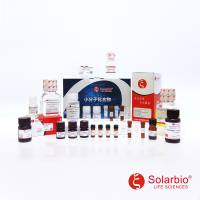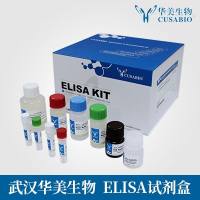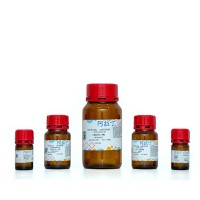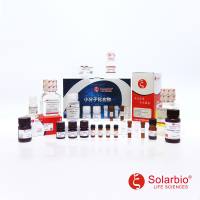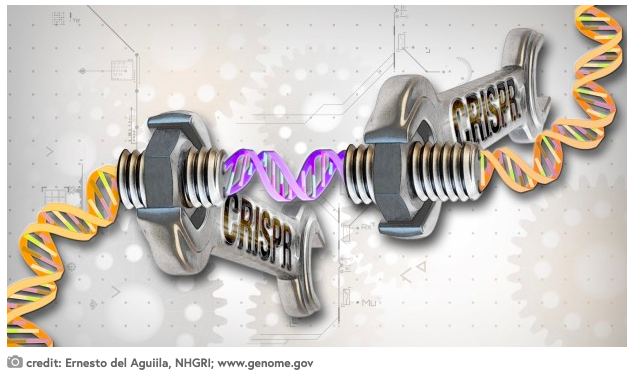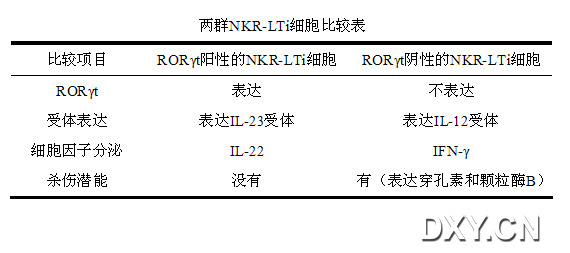【进展.热点】新的候选药逆转小鼠老年性记忆丧失
丁香园论坛
605
选择性阻止大脑中称之为11beta-HSD1的酶在实验中成功逆转了年老小鼠的记忆丧失, 在全球人口老龄化的背景下,这一研究成果将有深远的影响意义。
—— Docofsoul
<center> <strong>Promising Drug Candidate Reverses Age-Related Memory Loss in Mice</strong></center>
ScienceDaily (Oct. 13, 2010) — Researchers at the University of Edinburgh report a new experimental compound that can improve memory and cognitive function in aging mice. The compound is being investigated with a view to developing a drug that could slow the natural decline in memory associated with aging.
<center> </center>
A new experimental compound that can improve memory and cognitive function in aging mice, researchers report. (Credit: iStockphoto)
With support from a Wellcome Trust Seeding Drug Discovery award, the team has identified a preclinical candidate that they hope to take into human trials within a year.
Many people find they become more forgetful as they get older and we generally accept it as a natural part of the aging process. Absent mindedness and a difficulty to concentrate are not uncommon, it takes longer to recall a person's name, and we can't remember where we left the car keys. These can all be early signs of the onset of dementia, but for most of us it's just part of getting old.
Such memory loss has been linked with high levels of 'stress' steroid hormones known as glucocorticoids which have a deleterious effect on the part of the brain that helps us to remember. An enzyme called 11beta-HSD1 is involved in making these hormones and has been shown to be more active in the brain during aging.
In a study published in the Journal of Neuroscience, the team reports the effects of a new synthetic compound that selectively blocks 11beta-HSD1 on the ability of mice to complete a memory task, called the Y maze.
Professor Jonathan Seckl from the University of Edinburgh, who discovered the role of 11beta-HSD1 in the brain, described the findings: "Normal old mice often have marked deficits in learning and memory just like some elderly people. We found that life-long partial deficiency of 11beta-HSD1 prevented memory decline with aging. But we were very surprised to find that the blocking compound works quickly over a few days to improve memory in old mice suggesting it might be a good treatment for the already elderly."
The effects were seen after only 10 days of treatment.
Professor Brian Walker and Dr Scott Webster from the University of Edinburgh are leading the drug development programme. Professor Walker added: "These results provide proof-of-concept that this class of drugs could be useful to treat age-related decline in memory. We previously showed that carbenoxolone, an old drug that blocks multiple enzymes including 11beta-HSD1, improves memory in healthy elderly men and in patients with type 2 diabetes after just a month of treatment, so we are optimistic that our new compounds will be effective in humans. The next step is to conduct further studies with our preclinical candidate to prove that the compound is safe to take into clinical trials, hopefully within a year."
The 11beta-HSD1 enzyme has also been implicated in metabolic diseases including diabetes and obesity by the Edinburgh team, and similar drugs that block its activity outside of the brain are already under investigation.
This study was supported by the Wellcome Trust and the Medical Research Council (MRC). The drug development programme in Edinburgh is supported by a Seeding Drug Discovery award from the Wellcome Trust.
Dr Rick Davis of the Wellcome Trust commented: "Developing drugs that can selectively inhibit this enzyme has been a challenge to the pharmaceutical industry for nearly 10 years. Advancing this compound towards clinical trials takes us a step closer to finding a drug that could have far reaching implications as the population ages."
http://www.sciencedaily.com/releases/2010/10/101012173222.htm
============================================
<center> <br /> <strong>Promising Drug Candidate Reverses Age-Related Memory Loss in Mice<br /> <br /> 新的候选药逆转小鼠老年性记忆丧失</strong><br /> <br /> 译者:Docofsoul</center>
ScienceDaily (Oct. 13, 2010) — Researchers at the University of Edinburgh report a new experimental compound that can improve memory and cognitive function in aging mice. The compound is being investigated with a view to developing a drug that could slow the natural decline in memory associated with aging.
《每日科学》2010年10月13日报道 —— 爱丁堡大学的研究者报告说,一种新的实验化合物能够增进年老小鼠的记忆与认知功能。目前科学家正在测试该化合物,希望能由此开发出一种能够逆转与衰老有关的记忆力衰退进程的药品。
<center> </center>
A new experimental compound that can improve memory and cognitive function in aging mice, researchers report. (Credit: iStockphoto)
研究者报告说,一种新的实验化合物能够增进年老小鼠的记忆与认知功能(照片来源:iStockphoto)
With support from a Wellcome Trust Seeding Drug Discovery award, the team has identified a preclinical candidate that they hope to take into human trials within a year.
这项研究得到惠康信托新药研究投资计划(Wellcome Trust Seeding Drug Discovery)的支持。研究小组业已确认了一种临床前候选药物,并希望能够在一年内进行人类试验。
Many people find they become more forgetful as they get older and we generally accept it as a natural part of the aging process. Absent mindedness and a difficulty to concentrate are not uncommon, it takes longer to recall a person's name, and we can't remember where we left the car keys. These can all be early signs of the onset of dementia, but for most of us it's just part of getting old.
随着年龄的增长,许多人变得越来越健忘,但这一过程通常被看成是衰老进程的一个自然部分;心不在焉、精力涣散难以集中是司空见惯的现象:想起一个人的名字所花的时间变得越来越长,而要想起自己到底把车钥匙放在哪了也越来越费劲。所有这些都可以是痴呆症发作的早期信号,但是对大多数的人来说,这只是人开始变老的(过程的)一部分。
Such memory loss has been linked with high levels of 'stress' steroid hormones known as glucocorticoids which have a deleterious effect on the part of the brain that helps us to remember. An enzyme called 11beta-HSD1 is involved in making these hormones and has been shown to be more active in the brain during aging.
这种记忆损失与熟知的糖皮质激素这类“应激”类固醇激素的高水平有关。因为糖皮质激素对有助于记忆的大脑部分有损害作用。一种称之为11beta-HSD1的酶则与这些激素的生产过程有关,并且科学家也显示了大脑在衰老过程中这种酶变得更为活跃。
In a study published in the Journal of Neuroscience, the team reports the effects of a new synthetic compound that selectively blocks 11beta-HSD1 on the ability of mice to complete a memory task, called the Y maze.
在一项发表于《神经科学杂志》(Journal of Neuroscience)的研究中,研究小组报告了一种新的合成化合物的(记忆改善)效应。该化合物可选择性阻止11beta-HSD1,从而对小鼠完成Y迷宫记忆任务的能力产生影响。
Professor Jonathan Seckl from the University of Edinburgh, who discovered the role of 11beta-HSD1 in the brain, described the findings: "Normal old mice often have marked deficits in learning and memory just like some elderly people. We found that life-long partial deficiency of 11beta-HSD1 prevented memory decline with aging. But we were very surprised to find that the blocking compound works quickly over a few days to improve memory in old mice suggesting it might be a good treatment for the already elderly."
来自爱丁顿大学的Jonathan Seckl教授发现了11beta-HSD1在大脑中所扮演的角色。他对本研究的发现作了如下形容:“正常的年老小鼠跟老年人相似,经常有学习与记忆缺陷。我们发现,终生持续的11beta-HSD1局部缺陷可防止衰老过程中的记忆减退。但令人非常的惊讶的是,我们又发现了阻止该化合物可在几天内迅速地改善年老小鼠的记忆力。这提示,我们可能由此为老年人找到一种好的(改善记忆力的)疗法。”
The effects were seen after only 10 days of treatment.
(准确地说,)仅仅10天的治疗,效果就出来了。
Professor Brian Walker and Dr Scott Webster from the University of Edinburgh are leading the drug development programme.
来自爱丁顿大学的Brian Walker 教授与 Scott Webster 博士眼下正领导着该药物的开发计划。
Professor Walker added:"These results provide proof-of-concept that this class of drugs could be useful to treat age-related decline in memory. We previously showed that carbenoxolone, an old drug that blocks multiple enzymes including 11beta-HSD1, improves memory in healthy elderly men and in patients with type 2 diabetes after just a month of treatment, so we are optimistic that our new compounds will be effective in humans. The next step is to conduct further studies with our preclinical candidate to prove that the compound is safe to take into clinical trials, hopefully within a year."
Walker教授补充说:“这些结果提供了原理验证,即这类药物对治疗与衰老有关的记忆减退有效。此前,我们显示了甘珀酸(carbenoxolone)可在仅仅一个月的治疗时间内就改善了健康的老年人与II型糖尿病人的记忆力;甘珀酸是一种老药,可阻止包括11beta-HSD1在内的多种酶。因此我们对新的化合物将在人类身上取得成效持乐观态度。下一步是进行更多的实验,证明该临床前候选药物在临床试验中将是安全的;临床试验有希望在一年内进行。”
The 11beta-HSD1 enzyme has also been implicated in metabolic diseases including diabetes and obesity by the Edinburgh team, and similar drugs that block its activity outside of the brain are already under investigation.
爱丁顿大学的这一研究小组也已经证实 11beta-HSD1酶与包括糖尿病与肥胖症等在内的代谢病有关。阻止该酶在大脑外活动的类似药物也已纳入研究对象行列。
This study was supported by the Wellcome Trust and the Medical Research Council (MRC). The drug development programme in Edinburgh is supported by a Seeding Drug Discovery award from the Wellcome Trust.
本研究得到了惠康信托(Wellcome Trust)与医学研究委员会(MRC)的支持。爱丁顿的药物开发计划得到来自惠康信托的药物研究投资计划(Seeding Drug Discovery)的支持。
Dr Rick Davis of the Wellcome Trust commented: "Developing drugs that can selectively inhibit this enzyme has been a challenge to the pharmaceutical industry for nearly 10 years. Advancing this compound towards clinical trials takes us a step closer to finding a drug that could have far reaching implications as the population ages."
惠康信托的Rick Davis博士对此评论说:“开发能够选择性地阻止这种酶的药物,近十年来已经成为制药工业的挑战。将这种化合物推向临床试验则使我们向发现所希望的药品走近了一步。全球人口正在老龄化,因此这种药品将有深远的影响意义。”
(Docofsoul 译于 2010-10-14)
译后字数为1181 个中文字。
—— Docofsoul
<center> <strong>Promising Drug Candidate Reverses Age-Related Memory Loss in Mice</strong></center>
ScienceDaily (Oct. 13, 2010) — Researchers at the University of Edinburgh report a new experimental compound that can improve memory and cognitive function in aging mice. The compound is being investigated with a view to developing a drug that could slow the natural decline in memory associated with aging.
<center> </center>
A new experimental compound that can improve memory and cognitive function in aging mice, researchers report. (Credit: iStockphoto)
With support from a Wellcome Trust Seeding Drug Discovery award, the team has identified a preclinical candidate that they hope to take into human trials within a year.
Many people find they become more forgetful as they get older and we generally accept it as a natural part of the aging process. Absent mindedness and a difficulty to concentrate are not uncommon, it takes longer to recall a person's name, and we can't remember where we left the car keys. These can all be early signs of the onset of dementia, but for most of us it's just part of getting old.
Such memory loss has been linked with high levels of 'stress' steroid hormones known as glucocorticoids which have a deleterious effect on the part of the brain that helps us to remember. An enzyme called 11beta-HSD1 is involved in making these hormones and has been shown to be more active in the brain during aging.
In a study published in the Journal of Neuroscience, the team reports the effects of a new synthetic compound that selectively blocks 11beta-HSD1 on the ability of mice to complete a memory task, called the Y maze.
Professor Jonathan Seckl from the University of Edinburgh, who discovered the role of 11beta-HSD1 in the brain, described the findings: "Normal old mice often have marked deficits in learning and memory just like some elderly people. We found that life-long partial deficiency of 11beta-HSD1 prevented memory decline with aging. But we were very surprised to find that the blocking compound works quickly over a few days to improve memory in old mice suggesting it might be a good treatment for the already elderly."
The effects were seen after only 10 days of treatment.
Professor Brian Walker and Dr Scott Webster from the University of Edinburgh are leading the drug development programme. Professor Walker added: "These results provide proof-of-concept that this class of drugs could be useful to treat age-related decline in memory. We previously showed that carbenoxolone, an old drug that blocks multiple enzymes including 11beta-HSD1, improves memory in healthy elderly men and in patients with type 2 diabetes after just a month of treatment, so we are optimistic that our new compounds will be effective in humans. The next step is to conduct further studies with our preclinical candidate to prove that the compound is safe to take into clinical trials, hopefully within a year."
The 11beta-HSD1 enzyme has also been implicated in metabolic diseases including diabetes and obesity by the Edinburgh team, and similar drugs that block its activity outside of the brain are already under investigation.
This study was supported by the Wellcome Trust and the Medical Research Council (MRC). The drug development programme in Edinburgh is supported by a Seeding Drug Discovery award from the Wellcome Trust.
Dr Rick Davis of the Wellcome Trust commented: "Developing drugs that can selectively inhibit this enzyme has been a challenge to the pharmaceutical industry for nearly 10 years. Advancing this compound towards clinical trials takes us a step closer to finding a drug that could have far reaching implications as the population ages."
http://www.sciencedaily.com/releases/2010/10/101012173222.htm
============================================
<center> <br /> <strong>Promising Drug Candidate Reverses Age-Related Memory Loss in Mice<br /> <br /> 新的候选药逆转小鼠老年性记忆丧失</strong><br /> <br /> 译者:Docofsoul</center>
ScienceDaily (Oct. 13, 2010) — Researchers at the University of Edinburgh report a new experimental compound that can improve memory and cognitive function in aging mice. The compound is being investigated with a view to developing a drug that could slow the natural decline in memory associated with aging.
《每日科学》2010年10月13日报道 —— 爱丁堡大学的研究者报告说,一种新的实验化合物能够增进年老小鼠的记忆与认知功能。目前科学家正在测试该化合物,希望能由此开发出一种能够逆转与衰老有关的记忆力衰退进程的药品。
<center> </center>
A new experimental compound that can improve memory and cognitive function in aging mice, researchers report. (Credit: iStockphoto)
研究者报告说,一种新的实验化合物能够增进年老小鼠的记忆与认知功能(照片来源:iStockphoto)
With support from a Wellcome Trust Seeding Drug Discovery award, the team has identified a preclinical candidate that they hope to take into human trials within a year.
这项研究得到惠康信托新药研究投资计划(Wellcome Trust Seeding Drug Discovery)的支持。研究小组业已确认了一种临床前候选药物,并希望能够在一年内进行人类试验。
Many people find they become more forgetful as they get older and we generally accept it as a natural part of the aging process. Absent mindedness and a difficulty to concentrate are not uncommon, it takes longer to recall a person's name, and we can't remember where we left the car keys. These can all be early signs of the onset of dementia, but for most of us it's just part of getting old.
随着年龄的增长,许多人变得越来越健忘,但这一过程通常被看成是衰老进程的一个自然部分;心不在焉、精力涣散难以集中是司空见惯的现象:想起一个人的名字所花的时间变得越来越长,而要想起自己到底把车钥匙放在哪了也越来越费劲。所有这些都可以是痴呆症发作的早期信号,但是对大多数的人来说,这只是人开始变老的(过程的)一部分。
Such memory loss has been linked with high levels of 'stress' steroid hormones known as glucocorticoids which have a deleterious effect on the part of the brain that helps us to remember. An enzyme called 11beta-HSD1 is involved in making these hormones and has been shown to be more active in the brain during aging.
这种记忆损失与熟知的糖皮质激素这类“应激”类固醇激素的高水平有关。因为糖皮质激素对有助于记忆的大脑部分有损害作用。一种称之为11beta-HSD1的酶则与这些激素的生产过程有关,并且科学家也显示了大脑在衰老过程中这种酶变得更为活跃。
In a study published in the Journal of Neuroscience, the team reports the effects of a new synthetic compound that selectively blocks 11beta-HSD1 on the ability of mice to complete a memory task, called the Y maze.
在一项发表于《神经科学杂志》(Journal of Neuroscience)的研究中,研究小组报告了一种新的合成化合物的(记忆改善)效应。该化合物可选择性阻止11beta-HSD1,从而对小鼠完成Y迷宫记忆任务的能力产生影响。
Professor Jonathan Seckl from the University of Edinburgh, who discovered the role of 11beta-HSD1 in the brain, described the findings: "Normal old mice often have marked deficits in learning and memory just like some elderly people. We found that life-long partial deficiency of 11beta-HSD1 prevented memory decline with aging. But we were very surprised to find that the blocking compound works quickly over a few days to improve memory in old mice suggesting it might be a good treatment for the already elderly."
来自爱丁顿大学的Jonathan Seckl教授发现了11beta-HSD1在大脑中所扮演的角色。他对本研究的发现作了如下形容:“正常的年老小鼠跟老年人相似,经常有学习与记忆缺陷。我们发现,终生持续的11beta-HSD1局部缺陷可防止衰老过程中的记忆减退。但令人非常的惊讶的是,我们又发现了阻止该化合物可在几天内迅速地改善年老小鼠的记忆力。这提示,我们可能由此为老年人找到一种好的(改善记忆力的)疗法。”
The effects were seen after only 10 days of treatment.
(准确地说,)仅仅10天的治疗,效果就出来了。
Professor Brian Walker and Dr Scott Webster from the University of Edinburgh are leading the drug development programme.
来自爱丁顿大学的Brian Walker 教授与 Scott Webster 博士眼下正领导着该药物的开发计划。
Professor Walker added:"These results provide proof-of-concept that this class of drugs could be useful to treat age-related decline in memory. We previously showed that carbenoxolone, an old drug that blocks multiple enzymes including 11beta-HSD1, improves memory in healthy elderly men and in patients with type 2 diabetes after just a month of treatment, so we are optimistic that our new compounds will be effective in humans. The next step is to conduct further studies with our preclinical candidate to prove that the compound is safe to take into clinical trials, hopefully within a year."
Walker教授补充说:“这些结果提供了原理验证,即这类药物对治疗与衰老有关的记忆减退有效。此前,我们显示了甘珀酸(carbenoxolone)可在仅仅一个月的治疗时间内就改善了健康的老年人与II型糖尿病人的记忆力;甘珀酸是一种老药,可阻止包括11beta-HSD1在内的多种酶。因此我们对新的化合物将在人类身上取得成效持乐观态度。下一步是进行更多的实验,证明该临床前候选药物在临床试验中将是安全的;临床试验有希望在一年内进行。”
The 11beta-HSD1 enzyme has also been implicated in metabolic diseases including diabetes and obesity by the Edinburgh team, and similar drugs that block its activity outside of the brain are already under investigation.
爱丁顿大学的这一研究小组也已经证实 11beta-HSD1酶与包括糖尿病与肥胖症等在内的代谢病有关。阻止该酶在大脑外活动的类似药物也已纳入研究对象行列。
This study was supported by the Wellcome Trust and the Medical Research Council (MRC). The drug development programme in Edinburgh is supported by a Seeding Drug Discovery award from the Wellcome Trust.
本研究得到了惠康信托(Wellcome Trust)与医学研究委员会(MRC)的支持。爱丁顿的药物开发计划得到来自惠康信托的药物研究投资计划(Seeding Drug Discovery)的支持。
Dr Rick Davis of the Wellcome Trust commented: "Developing drugs that can selectively inhibit this enzyme has been a challenge to the pharmaceutical industry for nearly 10 years. Advancing this compound towards clinical trials takes us a step closer to finding a drug that could have far reaching implications as the population ages."
惠康信托的Rick Davis博士对此评论说:“开发能够选择性地阻止这种酶的药物,近十年来已经成为制药工业的挑战。将这种化合物推向临床试验则使我们向发现所希望的药品走近了一步。全球人口正在老龄化,因此这种药品将有深远的影响意义。”
(Docofsoul 译于 2010-10-14)
译后字数为1181 个中文字。
